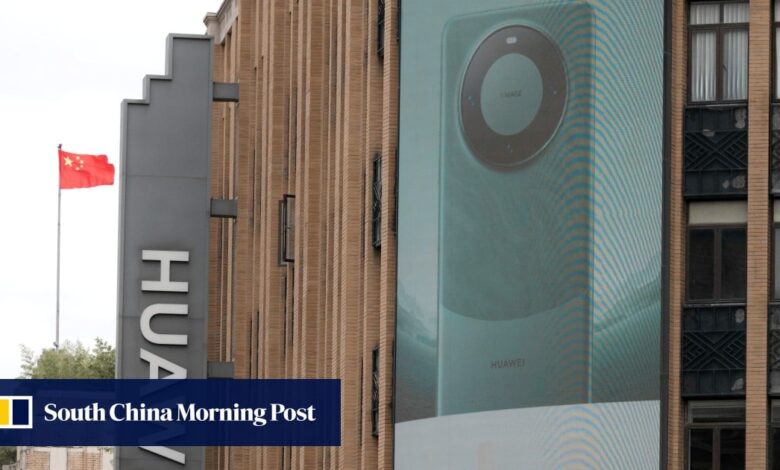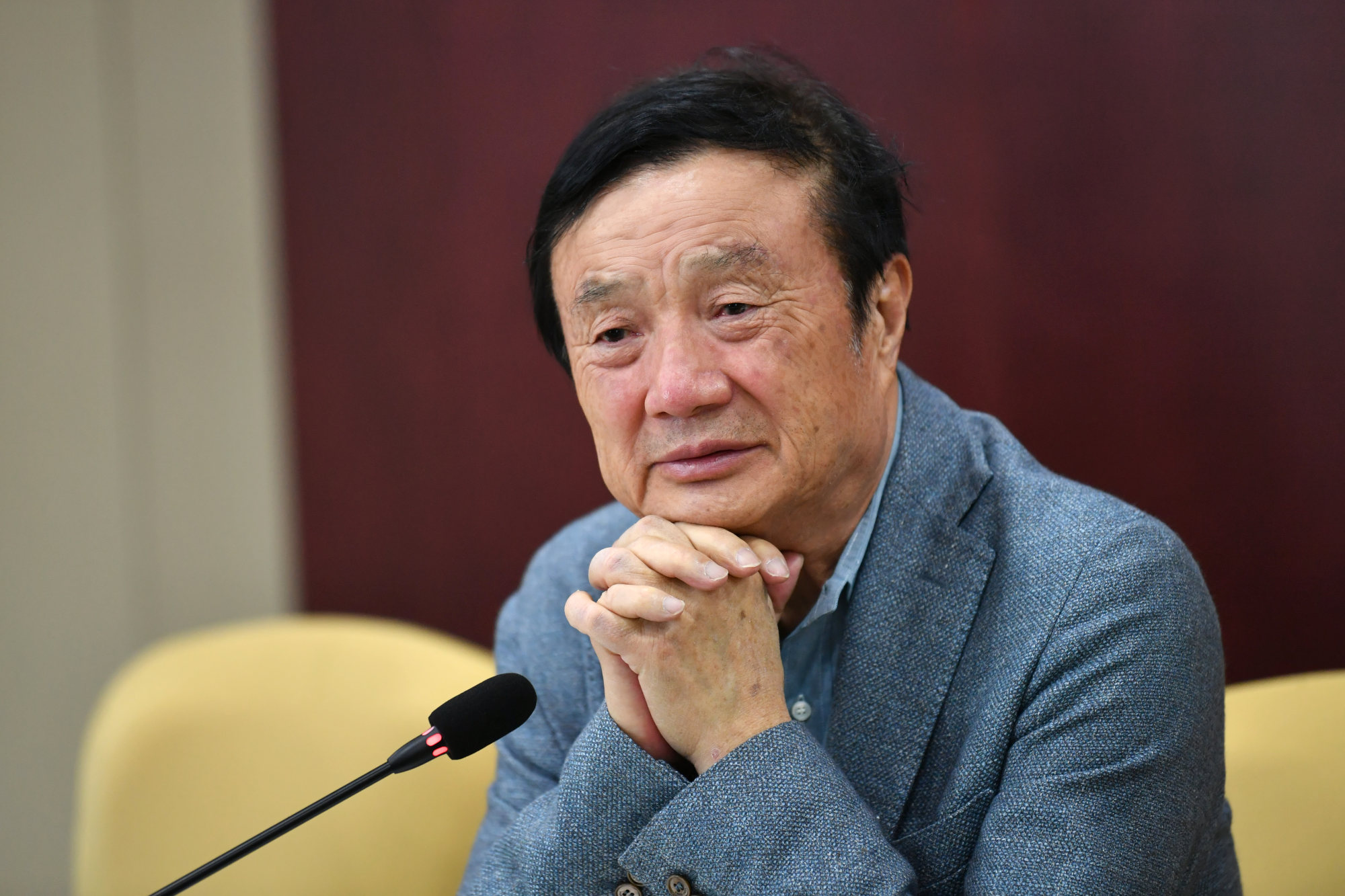Tech war: Huawei helps China to win ‘symbolic’ victory in defying Washington’s sanctions but headwinds remain

[ad_1]
The China-made chip at the heart of the Mate 60 Pro phone launched by Huawei Technologies in the past week marks a clear win for the country in its attempts to defy Washington’s sanctions, but analysts say it is premature for Beijing to declare victory in the ongoing technology war.
Shenzhen-based Huawei, which has been denied access to advanced US origin chip technologies since 2020, has said little on the technology behind the chip in its latest phone, triggering an industry guessing game about its origins.
According to a teardown by TechInsights, a Canadian semiconductor intelligence firm, the chip used is the Kirin 9000s, fabricated by China’s top foundry, Semiconductor Manufacturing International Corp (SMIC), using existing equipment.
It “represents a made-in-China design and manufacturing milestone for the most advanced Chinese foundry”, it said. SMIC did not reply to a request for comment on the matter.
The Mate 60 Pro has triggered an outpouring of nationalist sentiment, with netizens hailing the device as proof that China can make technological breakthroughs in the face of tough US sanctions.

In the past week, consumers have lined up at Huawei’s usually quiet stores to buy the new model, priced at 6,999 yuan (US$958). The stock prices of companies related to the sector have surged as a result, with SMIC up around 5 per cent over the past five days in Hong Kong.
Nationalist tabloid Global Times published an editorial last week saying the new handset is proof that “extreme suppression by the US has failed”. State-backed broadcaster CCTV has hailed the Mate 60 Pro as a phone powered by “Chinese chips”, and said in a report over the weekend that more than 10,000 components in the Mate 60 Pro were manufactured domestically, without identifying any suppliers.
However, Huawei has maintained a low profile on the new phone, declining to disclose further information about the handset’s chip. The Chinese government has also been relatively quiet on the matter, with a number of teardown articles on the phone removed from Chinese social media platforms.
Dan Hutcheson, vice-chair of TechInsights, said the Huawei phone may lead to “even greater restrictions than those that exist today” on China. Aside from chips, the country is currently blocked from buying the most advanced extreme ultraviolet (EUV) lithography tools made by Dutch provider ASML, used to pack more transistors onto a single chip.
Tilly Zhang, an analyst at research agency Gavekal Dragonomics, wrote in a note published on Tuesday that Huawei’s new phone is “embarrassing for the US Department of Commerce” as the chip inside exceeds the technology thresholds that the US wrote into its semiconductor sanctions on China.
Huawei renews licensing deal with Ericsson in bid to monetise its tech patents
Huawei renews licensing deal with Ericsson in bid to monetise its tech patents
But the chip “is still a few years behind the current state of the art”, Zhang added. “It is more of a symbolic victory for Huawei that will not fundamentally change the trajectory of China’s technology sector under US sanctions.”
While the new phone will help Huawei to regain some lost ground in the Chinese handset market, it is unlikely to see the company return to its heyday before 2020, when Huawei was challenging Apple and Samsung Electronics in global markets.
Kuo Ming-chi, an analyst at TF International Securities, noted that Huawei is expected to sell at least at least 12 million units of the Mate 60 Pro in the 12 months following launch. This will be well up from the 2.5 million sales of last year’s Mate 50 Pro, but still a far cry from likely sales of Apple’s upcoming iPhone 15 model, estimated to be about 90 million this year.
However, although further restrictions may intensify the war of words between Beijing and Washington over sensitive areas of technology development, the move may also spark debate over the long-term effectiveness of sanctions, said Lee.
.
[ad_2]
Source link





